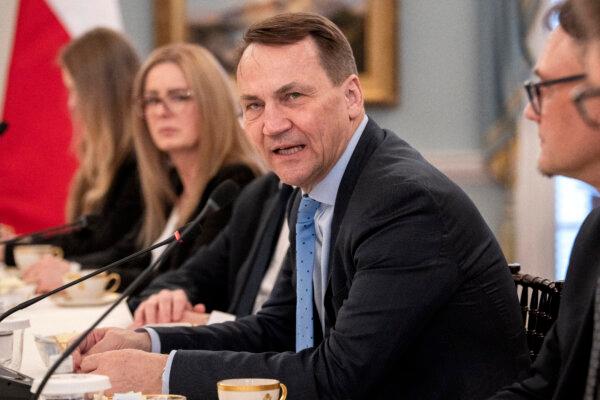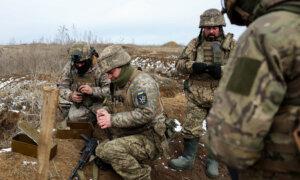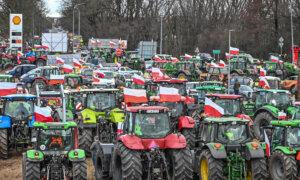‘The presence of NATO forces in Ukraine is not unthinkable,’ said Polish Foreign Minister.
President Joe Biden will host Poland’s President Andrzej Duda and Prime Minister Donald Tusk at the White House on March 12 to coordinate ahead of the upcoming NATO Summit and discuss the future admission of other countries, including Ukraine, to the Alliance.
President Duda said on March 5 during his visit to the site of NATO’s Steadfast Defender 2024 exercise in northern Poland that among the topics he would discuss with President Biden would be the future expansion of the Alliance, including Ukraine’s accession and Polish arms purchases from the United States, according to a statement.
The Council, an advisory body to the president, is composed of top government and security officials and party leaders and convenes when key national security issues need to be discussed, according to the statement.
Ukraine’s Path to NATO
In response to Ukraine’s aspirations for NATO membership, the Allies agreed at the 2008 NATO summit in Bucharest, Romania, that Ukraine would become a member of the Alliance.
However, in 2010, the country pursued a non-alignment policy, which it terminated after the Russian annexation of Crimea and the takeover of the Donbas region by Russian-backed separatists in 2014.
In 2017, the Ukrainian parliament adopted legislation making the country’s membership in NATO a strategic objective and enshrined it in the Ukrainian constitution two years later.
The NATO summit in 2023 exempted Ukraine from the Membership Action Plan (MAP), which is a required step in the new member accession process. MAP was launched after the first batch of former communist countries in Eastern Europe joined NATO with a goal to streamline the admission procedure.
“As for the summit this summer, I do not expect the Alliance to issue an invitation [to Ukraine] at this juncture,” Ms. Smith said.
“The threat of Ukraine’s accession to NATO is … one of the reasons for the special military operation,” Mr. Putin said. “This would not enhance Ukraine’s security in any way either. In general, it will make the world much more vulnerable and lead to more tensions in the international arena,” he added.
Will NATO Send Troops to Ukraine?

French President Emmanuel Macron has raised the possibility of EU states sending troops to Ukraine to fight against Russia’s invasion.
Mr. Macron made the remarks at a Feb. 26 meeting of European leaders in Paris. The event was convened to reiterate the EU’s continued support for Ukraine, which has recently suffered a series of bruising battlefield losses.
The Kremlin has warned that if NATO sends combat troops, a direct conflict between the alliance and Russia would be inevitable. Mr. Putin said such a move would risk a global nuclear conflict.
Mr. Tusk was among those European leaders who initially ruled out sending troops to Ukraine after Mr. Macron’s remarks, saying: “Poland does not plan to send its troops to the territory of Ukraine.”
Adam Morrow and The Associated Press contributed to this report.
Original News Source Link – Epoch Times
Running For Office? Conservative Campaign Consulting – Election Day Strategies!


